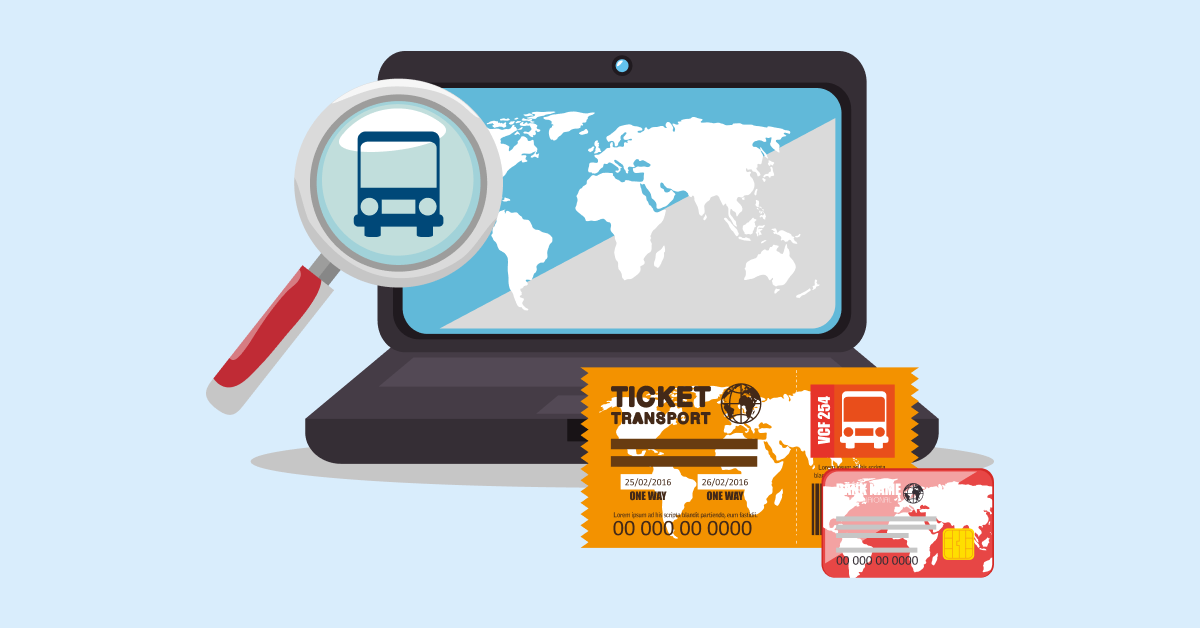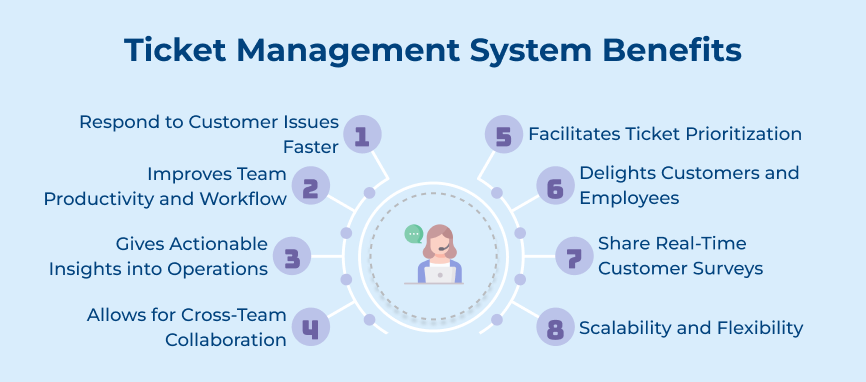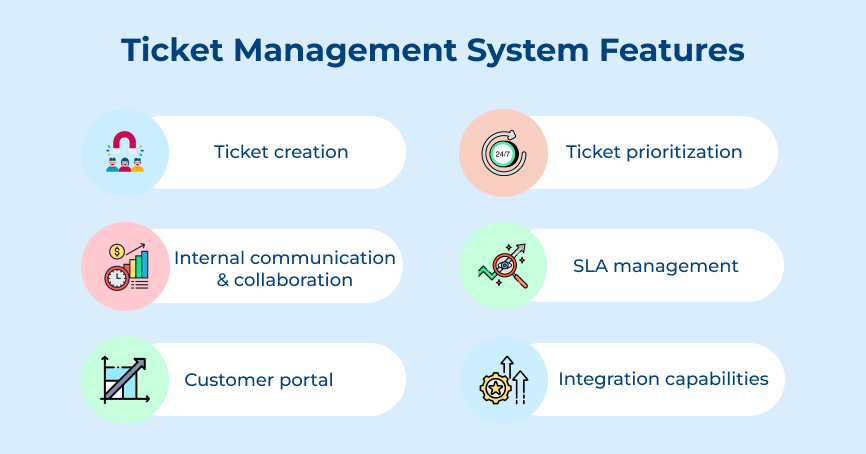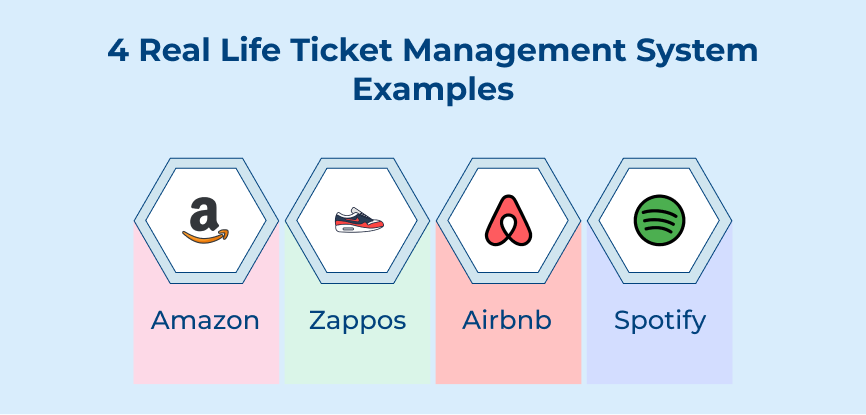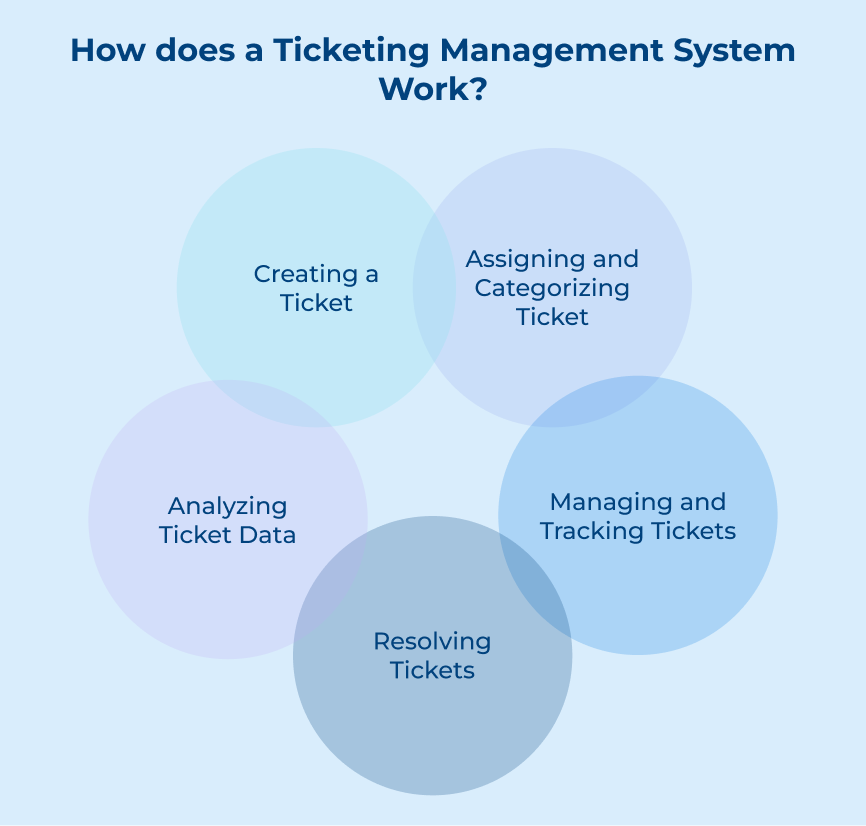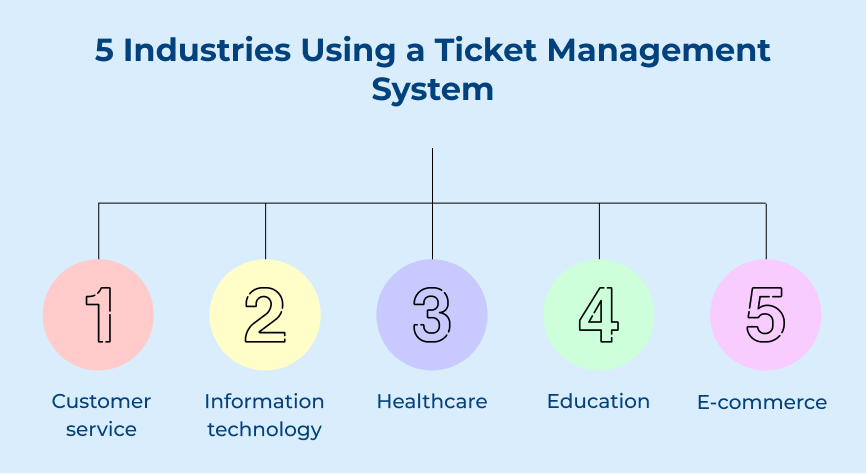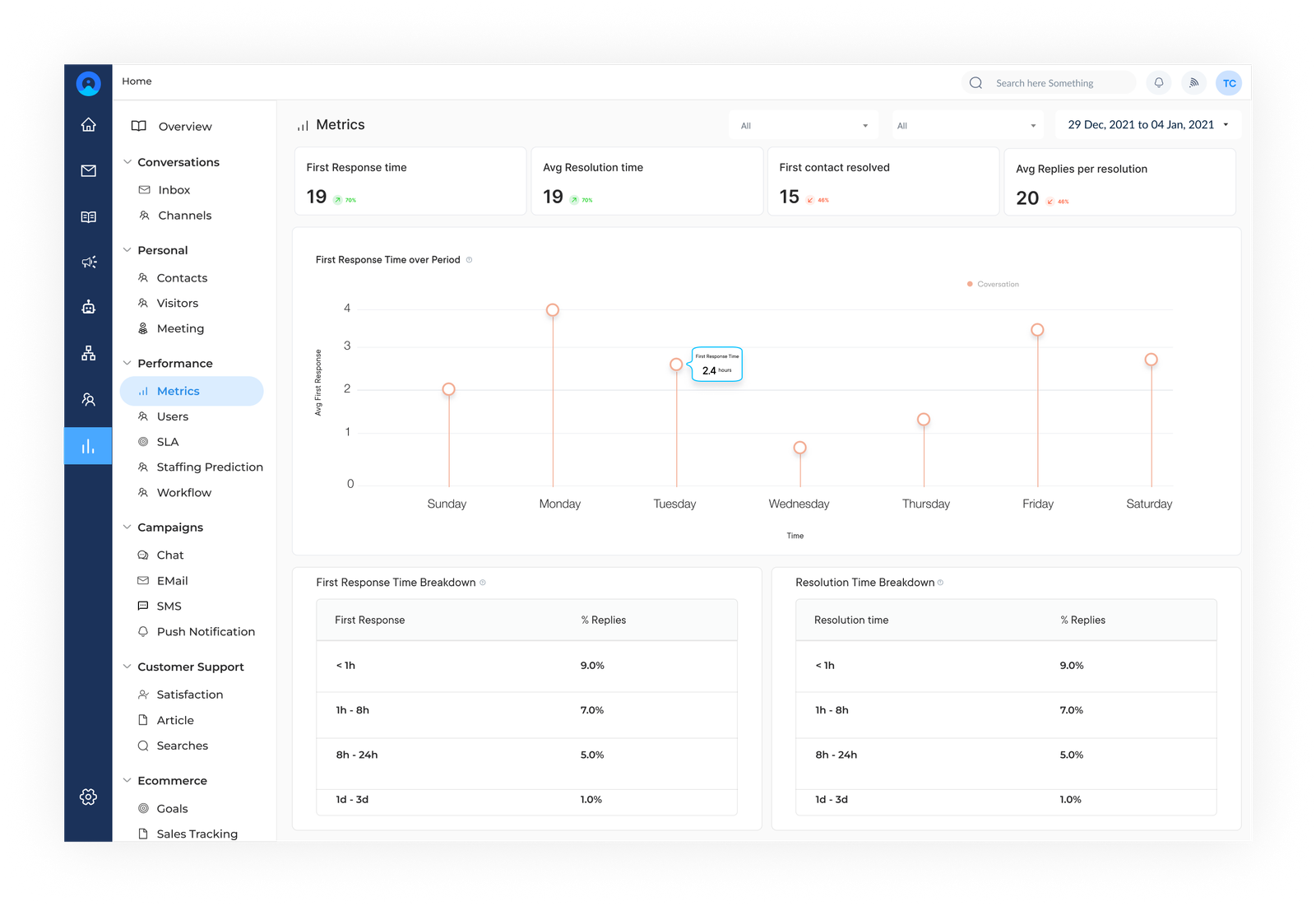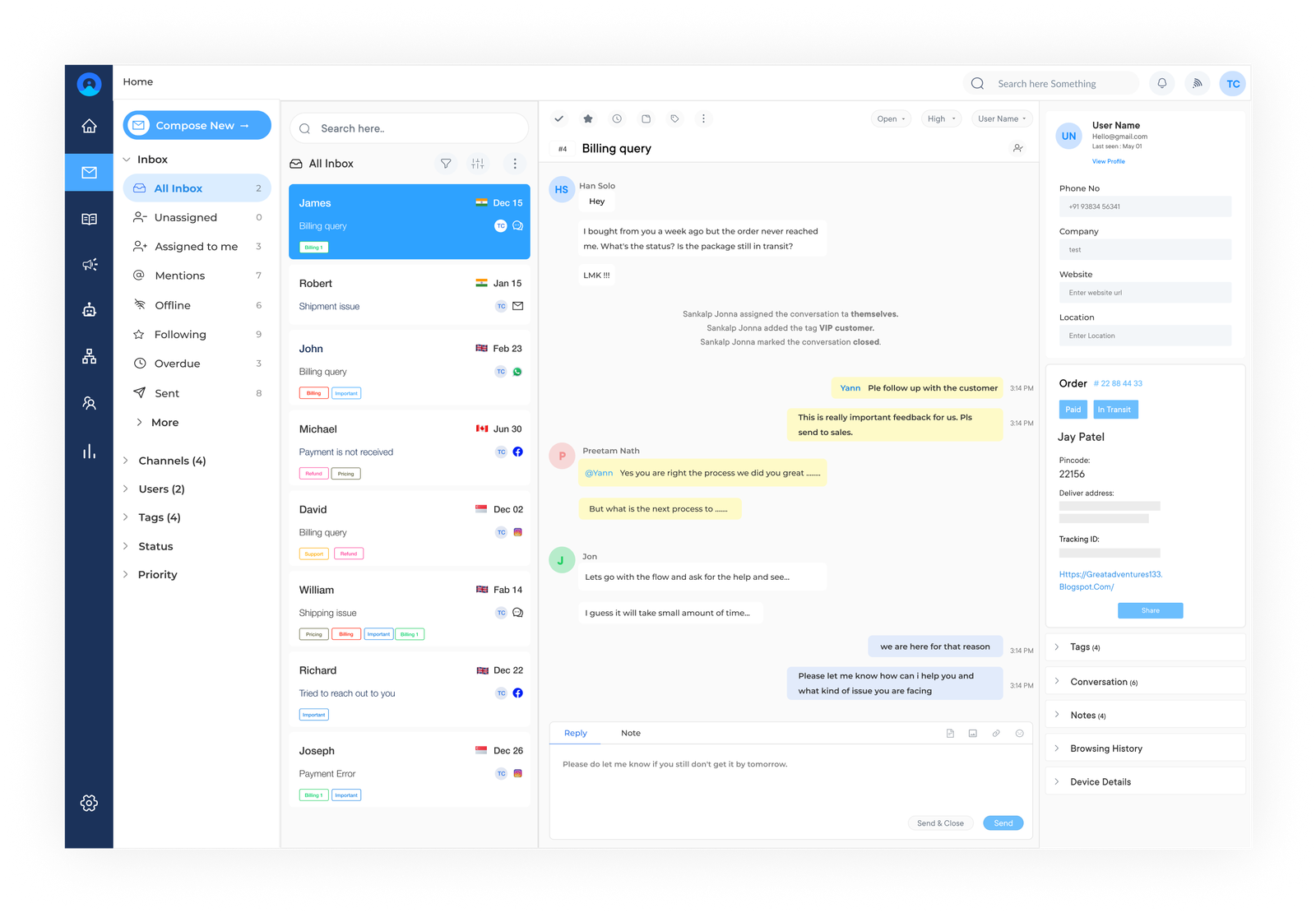1. Respond to Customer Issues Faster
Customer satisfaction has become more important than ever. One key benefit of adopting a ticket management system tool is the ability to respond to customer issues faster. Responding to customer issues faster is crucial for maintaining a positive reputation and building customer loyalty. 12% of customers expect a response within 15 minutes or less.
Let’s assume a customer sends an email with a complaint about a product. Using a ticket management system assigns and resolves issues promptly by directing them to a customer service representative. It leads to a satisfied customer who is more likely to return for future purchases.
Actionable tips:
- Setting up automated responses to acknowledge receipt of a ticket
- Using predefined responses for common issues to streamline the resolution process
- Regularly monitoring and updating ticket statuses to ensure all issues are addressed promptly.
2. Improves Team Productivity and Workflow
One significant benefit of implementing a ticket management system is that it improves team productivity and workflow. A centralized platform for organizing customer inquiries helps team collaboration and efficient issue resolution. It leads to faster response times, streamlined communication and a more organized approach to handling tasks.
Imagine a customer support team that has a ticket management system. It allows agents to assign tickets, track progress and ensure that no inquiries fall through the cracks. The approach improves customer satisfaction and retention rates.
Actionable tips:
- Set clear guidelines for ticket management to ensure consistency and efficiency in handling tasks.
- Utilize automation features to streamline repetitive tasks and free up time for more complex issues.
- Regularly review performance metrics to identify areas for improvement and optimize team productivity.
3. Gives Actionable Insights into Operations
Ticket management systems offer many benefits to businesses, one of which is providing actionable insights into operations. Utilizing analytics from tickets can help companies gain valuable information on customer issues, trends and overall performance. Actionable can help organizations identify recurring problems, optimize processes and enhance customer satisfaction.
Let’s take an example of a company that uses an IT ticket management system. Say they noticed a high volume of tickets related to a specific product feature. Analyzing the data allowed them to prioritize efforts towards addressing the issue. The result is happier customers and improved product quality.
Actionable tips:
- Regularly analyze ticket data to identify patterns and trends.
- Use insights to streamline processes and make data-driven decisions.
- Implement changes based on the information gathered to improve operations and customer experiences.
4. Allows for Cross-Team Collaboration
One of the key benefits of adopting a ticket management software is that it allows for cross-team collaboration. Cross-team collaboration is important because it enables employees to share information, expertise and resources. Teamwork and collaboration in the workplace have been said to increase sales by 27%.
A ticket management software allows the customer service team to easily escalate a customer issue to the technical support team. They can then work together to resolve the issue promptly. It not only improves customer satisfaction but also streamlines the internal processes within the organization.
Actionable tips:
- Clearly define roles and responsibilities for each team member involved in the ticket resolution process.
- Use communication tools within the ticket management software to keep everyone in the loop and ensure transparency.
- Regularly review the data generated by the ticket management platform to identify areas for improvement and optimize workflow processes.
5. Facilitates Ticket Prioritization
Ticket prioritization is a crucial aspect of efficient customer service and issue resolution. One of the key benefits of adopting ticket management software is that it facilitates ticket prioritization. Using a ticket management platform allows the support teams to easily categorize and prioritize incoming tickets based on their impact on customers.
Let’s consider a software company that utilizes a ticket management system to promptly identify and prioritize system outages. It enables quick resolution to minimize customer disruption.
Actionable tips:
- Define clear criteria for ticket prioritization based on the impact on customers and the urgency of the issue.
- Regularly update ticket priorities as new information or customer feedback becomes available.
- Use automation tools within the ticket management software to route and escalate tickets based on predefined criteria.
6. Delights Customers and Employees
One of the key benefits of adopting ticket management software is that it delights both customers and employees. Ticket management software can improve customer experience and staff satisfaction by optimizing issue tracking. Delighting customers is crucial for businesses to retain their loyalty and increase brand advocacy.
Customers can easily submit their concerns and receive timely updates on the status of their tickets. Happy employees are more likely to be productive and engaged in their work. An IT ticket management system helps employees efficiently prioritize and resolve customer issues, leading to reduced stress levels.
Actionable tips:
- Ensure clear communication with customers by providing timely updates on the status of their tickets.
- Use automation features to streamline repetitive tasks and free up employees to focus on more complex customer issues.
- Regularly train and support employees on how to use the ticket management system effectively to improve customer satisfaction.
7. Share Real-Time Customer Surveys
A ticket management system offers various benefits to businesses and one of them is the ability to share real-time customer surveys. Real-time customer surveys are important because they provide businesses with valuable insights into customer satisfaction and preferences. Gathering real-time feedback helps to promptly resolve issues and enhance customer experience for greater retention.
One use case for the benefit is a restaurant using a ticket management system tools to send out surveys to customers after their dining experience. Requesting real-time customer feedback can pinpoint areas like food quality or service for improvement and enhance overall satisfaction.
Actionable tips:
- Customize the surveys to collect specific feedback relevant to the business.
- Encourage customers to provide detailed feedback by offering incentives or rewards.
- Use the insights gathered from surveys to make data-driven decisions and improve customer experience.
8. Scalability and Flexibility
Scalability and flexibility are key benefits of adopting a ticket management software for any organization. The ability to scale up or down the ticket system based on the organization’s needs is crucial for businesses of all sizes. Scalability allows the ticket system to adjust smoothly to fluctuating demands, avoiding disruptions.
A use case for scalability and flexibility in a ticket management system can be seen in a customer service department. During peak seasons, the system can handle a high volume of tickets efficiently by automatically assigning and tracking customer inquiries. The system can easily scale back when demand drops, efficiently reallocating resources.
Actionable tips:
- Regularly review and adjust ticket workflows to ensure they align with current business needs.
- Utilize automation features to streamline ticket processing and reduce manual tasks.
- Implement regular training for employees to ensure they are proficient in using the ticket management system effectively.
Ticket Management System Features?
A ticket system is an essential tool for businesses looking to efficiently handle customer support requests and internal communication. There are some must-have features to look out for. Let us check those ticket management system features below:
